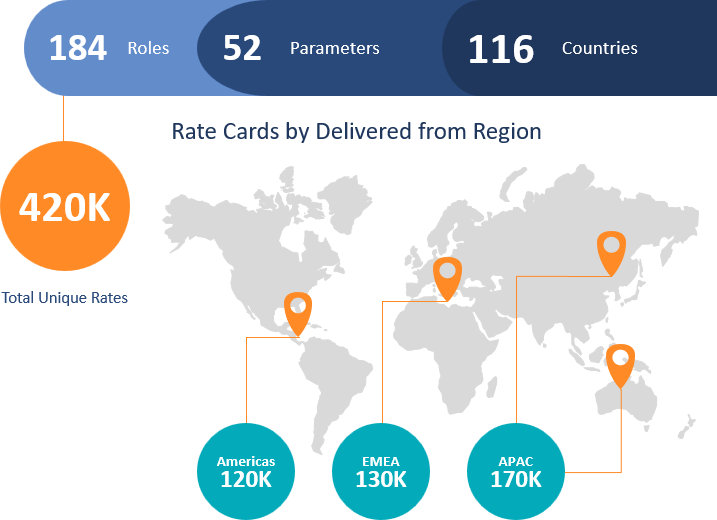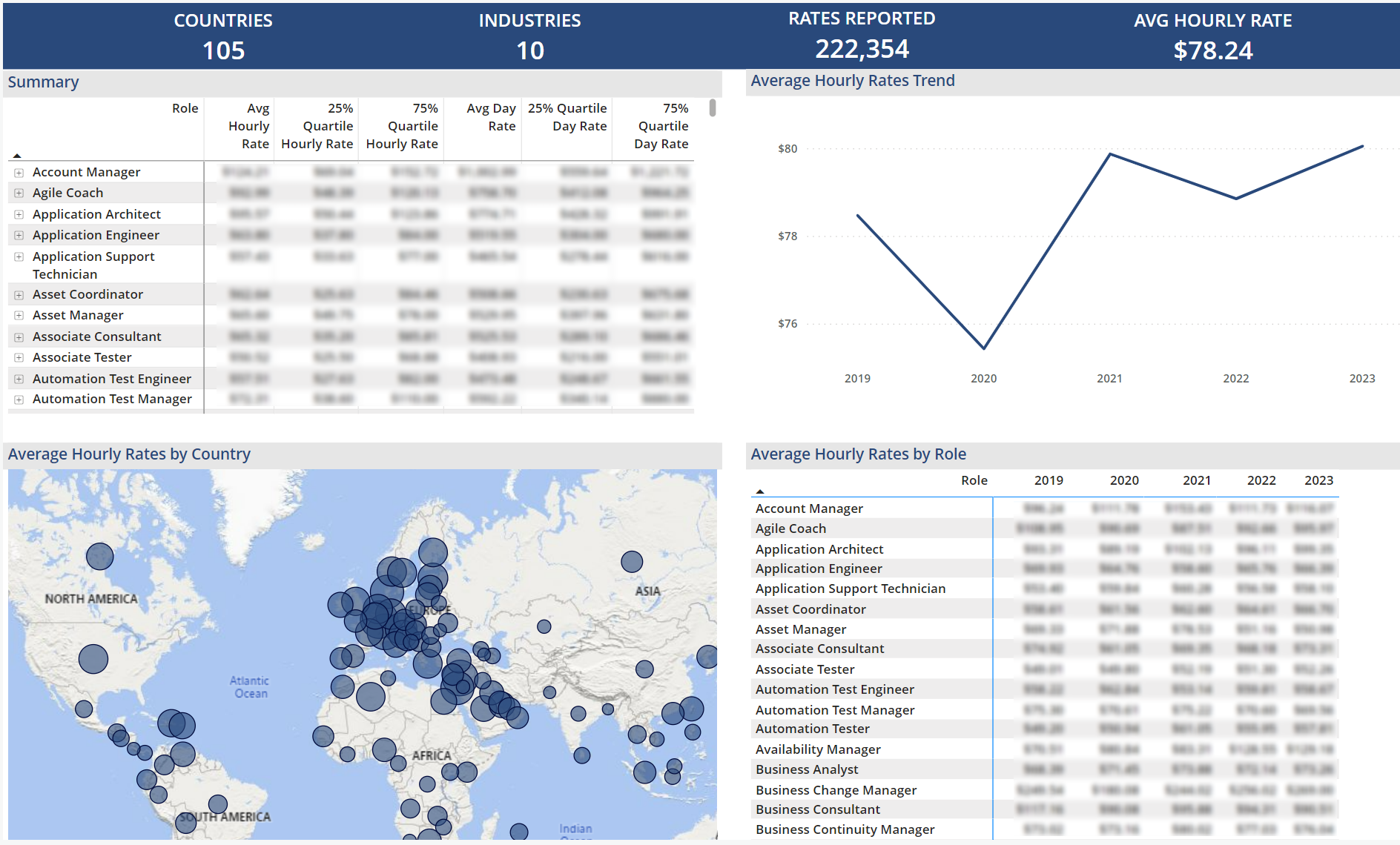5 Ways to Optimize Application Sourcing Costs in an AI-Enabled Market
Application sourcing —software, support, labor and managed services — presents a prime opportunity to reduce spend and improve value realization.




ISG's Rate Card Database sets the industry standard for accuracy and reliability. Our proven methodology, honed over decades of benchmarking experience, allows us to establish baseline profiles and compare your organization's performance with current market data.

Service Areas
Key Parameters
Service Areas
Key Parameters
Industry Groups

ISG is a leader in proprietary research, advisory consulting and executive event services focused on market trends and disruptive technologies.
Get the insight and guidance you need to accelerate growth and create more value.
Learn MoreI am struck by the blizzard of software announcements this year describing new features for CX tools that are “agentic,” meaning autonomous tools take actions without (much) human intervention. Industry conversation about agentic AI has proceeded ahead of clarifying definitions and a sense of how it fits on a continuum of rapid AI development.
The IT department of any enterprise is integral to implementing and managing the execution of its data objectives, just as the finance department is integral to implementing and managing financial objectives. Few enterprises would allow the finance department complete autonomy to define financial strategies; however, too many enterprises allow the IT department to define data strategies. Treating data as a business discipline—rather than a technical one—is a critical component of delivering competitive advantage through investment in data processing, analytics and artificial intelligence. This can be facilitated by adopting the most appropriate organizational approach, depending on the data activity.
The need for effective cybersecurity strategies remains a priority as enterprises face ever-increasing complex cyber threats. Nonetheless, the conventional approach in which IT departments, especially Chief Information Officers (CIOs) and Chief Information Security Officers (CISOs), exclusively manage the procurement of cybersecurity software, is showing its limitations. A crucial shift is occurring: Cybersecurity is no longer solely the domain of IT but has become a strategic business imperative. Leaders across different departments, from finance to operations, must appreciate the indispensable role they play in guiding cybersecurity decisions. This Analyst Perspective explores the influences in cybersecurity software procurement beyond IT and security teams, highlighting the necessity for unified communication, collaboration and strategic alignment between technical needs and overarching business goals.
SAP Business Data Cloud (BDC) is the unification of capabilities that previously existed in two separate offerings: SAP Datasphere and SAP Analytics Cloud. As its name implies, Analytics Cloud was SAP’s analytics offering. However, unlike many of its competitors, it also included planning capabilities. SAP Datasphere was the evolution of SAP’s data warehouse as a service (formerly called SAP Data Warehouse Cloud) and included data management, data integration, data federation, data governance and data catalog capabilities.
Our 2025 research divides the workforce-management landscape into five focused guides—WFM Basics, WFM Suites, WFM for Healthcare, WFM for Manufacturing and WFM for Retail. Each report applies a common evaluation lens yet weights criteria to reflect the operational realities, compliance pressures and innovation priorities unique to its scope. Together, they provide a panoramic view of the market and a set of targeted benchmarks that let buyers zero in on the capabilities—and partners—best aligned to their context.

